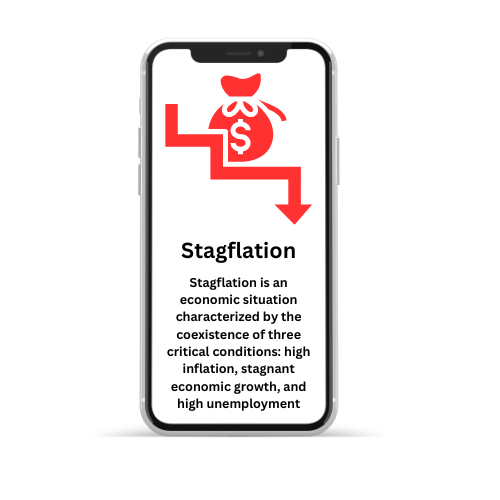Baby bonds are small-denomination bonds designed to make fixed-income investing accessible to retail investors or, in a policy context, to reduce wealth inequality. In the financial markets, corporate baby bonds offer low-cost entry points, typically with face values between $25 and $1,000, allowing smaller investors to earn regular interest.
In a social policy context, baby bonds are government-backed savings accounts given to children at birth, particularly from low-income families, to help build wealth over time. These accounts grow until adulthood, providing funds for education, homeownership, or other investments, aimed at promoting long-term financial equity and stability.
Corporate Baby Bonds
Corporate baby bonds are essentially small-denomination bonds that are accessible to retail investors due to their lower face values, typically ranging from $25 to $1,000, compared to traditional bonds that often have face values starting at $1,000 or higher. These are popular among individual investors who may not have the capital to invest in larger-denomination bonds but still want to benefit from fixed-income investments.
Key Features:
- Denomination: Corporate baby bonds have small face values, usually $25, $50, $100, or $1,000. This low entry point makes them accessible to smaller retail investors.
- Interest Payments: Like traditional bonds, baby bonds pay interest, often referred to as a “coupon rate,” which can be fixed or floating. The interest payments are typically made quarterly or semi-annually.
- Maturity Date: Baby bonds have a fixed maturity date, usually 5 to 30 years, at which point the bondholder is repaid the bond’s face value. Some baby bonds are callable, meaning the issuer can redeem them before the maturity date.
- Trade ability: Many corporate baby bonds are traded on major stock exchanges, which makes them more liquid than traditional bonds that are often traded in over-the-counter (OTC) markets. This gives investors the flexibility to sell their baby bonds before maturity.
- Unsecured Debt: Most baby bonds are unsecured, meaning they are not backed by specific collateral like property or equipment. This adds risk, as bondholders have no claim to specific assets in case the issuer defaults.
- Higher Yield: Because baby bonds are often unsecured and issued by companies with higher credit risk, they usually offer higher interest rates (yields) to compensate investors for the additional risk. These can be attractive to income-seeking investors.
Example:
- A company issues baby bonds at $25 face value, paying a 6% annual interest rate with a maturity of 10 years. If you invest $500, you would buy 20 baby bonds, and you would receive $30 (6% of $500) in interest annually until the bond matures or is called by the issuer.
Pros:
- Low Investment Minimums: Retail investors can participate without needing a large amount of capital.
- Regular Income: Investors receive periodic interest payments, which can be attractive for those seeking a steady income.
- Tradeable: Listed on exchanges, making them more liquid than traditional bonds.
Cons:
- Higher Risk: Many baby bonds are issued by companies with lower credit ratings and are unsecured, making them riskier than traditional bonds.
- Callable: Issuers can often redeem baby bonds before maturity, which may limit potential returns if interest rates fall and the bonds are called early.
Government-Issued Baby Bonds (Social Policy)
In the context of government policy, baby bonds refer to a proposed or existing system where the government provides savings accounts or bonds to children at birth, particularly focusing on low-income families, with the goal of reducing wealth inequality over time. These programs are based on the idea that building wealth from an early age can help bridge the gap between rich and poor.
Key Features:
- Purpose: The main goal of government-issued baby bonds is to reduce wealth inequality by providing children, especially those from low-income families, with a financial foundation for the future. These funds are usually locked until the child reaches adulthood, at which point they can be used for specific purposes, such as higher education, buying a home, or starting a business.
- Funding: The government typically makes an initial deposit into the baby bond account at the child’s birth. In some proposed models, annual contributions may be added based on the family’s income level, with lower-income families receiving larger contributions.
- Growth: The money in these accounts is invested and allowed to grow over time, usually through a low-risk investment strategy, so that by the time the child reaches adulthood, the account has grown significantly.
- Eligibility and Access: While the idea is that all children would receive baby bonds, the amount given often depends on the income of the family. Higher benefits are reserved for those in lower income brackets to ensure that the program effectively addresses wealth disparities.
- Restricted Use: In most proposals, the funds in baby bonds are restricted to specific uses when the child becomes an adult, such as higher education, purchasing a home, or starting a business. This ensures that the funds are used to build long-term financial security.
Example:
- The U.K. introduced a similar program called the Child Trust Fund in 2005, where every child born between September 1, 2002, and January 2, 2011, received a savings account with an initial deposit from the government. The funds became accessible when the child turned 18. Though the program was discontinued in 2011, it laid the groundwork for baby bonds proposals elsewhere.
- In the U.S., Senator Cory Booker proposed a baby bonds program where every child born in the U.S. would receive a $1,000 bond, with additional annual deposits based on the family’s income. Children from the poorest families would receive up to $2,000 annually, potentially accumulating over $45,000 by age 18.
Pros:
- Wealth Redistribution: Baby bonds aim to reduce the wealth gap between rich and poor families, offering children from low-income households a stronger financial footing.
- Long-term Benefits: By the time a child reaches adulthood, they have a significant amount of money that can be used for life-enhancing purposes like education or homeownership.
- Nationwide Impact: A well-designed baby bond program could create broader economic stability and mobility, especially in historically marginalized communities.
Cons:
- High Cost: Implementing a large-scale baby bond program requires significant government expenditure, which raises questions about how such programs will be funded.
- Political Challenges: There may be resistance to such policies, especially regarding funding and the concept of wealth redistribution.
- Restricted Use: While restricted use ensures the funds are spent wisely, it may limit the flexibility of beneficiaries who might need the funds for other critical purposes.
Conclusion
Corporate baby bonds serve the financial markets by offering an accessible way for retail investors to participate in fixed-income securities, providing a steady stream of interest payments at a relatively low cost. They’re especially appealing to income investors looking for manageable, small-denomination bonds with regular payouts.
Government-issued baby bonds, on the other hand, are more of a social equity tool aimed at reducing wealth inequality over generations. These bonds focus on creating a financial foundation for children, particularly those from low-income families, to ensure greater financial security and opportunity when they become adults.
Both types of baby bonds represent strategies for building wealth but cater to very different financial and social objectives.







